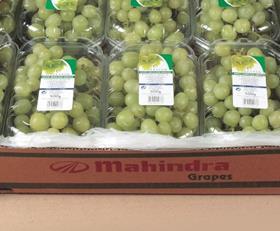
The news that a major Indian car manufacturer is turning its attention to the fruit business should turn a few heads in Europe.
Mahindra & Mahindra, a multinational congolomerate with turnover of US$16.2bn and known primarily as an automobile company, has announced plans to launch its own fresh fruit brand in November as it looks to build its agribusiness division.
In a world where trade is increasingly interconnected and intertwined, this could have major ramifications for the fruit business here in Europe, opening up as it does the possibility of new growth for imported produce in what is one of the world's most promising, but actually rather underdeveloped and infrastructurally deficient, consumer markets.
As our news report over on the Asiafruit website reports, the Mumbai-based company has already tied up deals for its Saboro brand with a number of major Indian retailers.
As if to underline the global impact such a move could have, the name is a Spanish word, meaning 'taste'. Should the burgeoning Indian middle class indeed develop a taste for the kind of premium-quality – and potentially imported – fruit that Mahindra has to offer, then we could be on the brink of a hugely important breakthrough in terms of India's willingness to buy fresh produce from overseas.
I know of at least one Indian importer who is due to be in Europe at the start of November. They're on the lookout for new sources of kiwifruit and, although I cannot be certain of any link to Mahindra's project – this particular importer keeps their cards close to their chest – I am sure both developments are linked to India's increasing hunger for high-quality fruit.
The key point here is that Mahindra's planned investment in a value chain for Saboro could do much to overcome India's much-publicised logistical problems – problems that have made growth in the market much more difficult in the past.
As Asiafruit reports, the group is understood to be looking at importing citrus and pears from South America, kiwifruit from Australia, counter-seasonal apples from the US and China, and exotic fruit such as dragon fruit, passion fruit and star fruit from other parts of the world.
Importers and retailers in Europe are already feeling the effects of China's greater demand for overseas fruit; now they could find there's another multi-billion population throwing its hat in the procurement ring.



